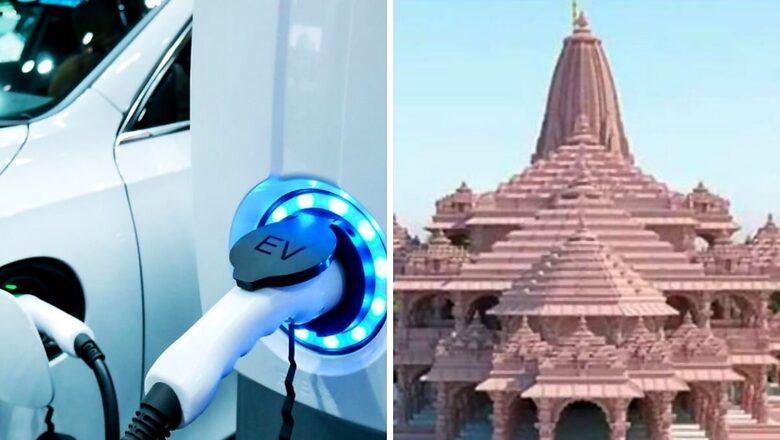
views
To facilitate tourists and boost green tourism, the Uttar Pradesh (UP) government plans to install at least 2,000 public charging stations (PCS) for electric vehicles (EV) around civic bodies, tourism and heritage sites, including Ram Temple in Ayodhya and Taj Mahal in Agra.
Officials with Uttar Pradesh Expressways Industrial Development Authority (UPEIDA), the agency handling the project, said the move would encourage the use of EVs, even on highways, as it is the only solution to minimise the dependency on fossil fuel and fight environmental issues.
“The Government of India is constantly pushing for adoption of EVs to reduce fuel consumption and improve environmental conditions. In line with the Centre’s initiative, we have decided to install around 2,000 PCS across UP,” said Hari Pratap Shahi, additional chief executive officer (Ad CEO), UPEIDA.
According to the records, UP currently has the maximum numbers of EVs at 4,14,978, followed by Delhi (1,83,874) and Maharashtra (1,79,087). UP also tops the list of states having the largest numbers of e-rickshaws. Officials said a good charging infrastructure is key to boost the use of EVs.
HOW THE PCS WILL BE DISTRIBUTED
Of the total PCS, the UP government has proposed to install around 100 charging stations at the heritage sites including Ram Mandir, Taj Mahal, Fatehpur Sikri Fort, Sarnath Temple, Vishwanath Temple, Sravasti and others.
At least 200 PCS will be installed in and around prime tourism destinations, including Mathura and Vrindavan, Varanasi, Ayodhya, Prayagraj and Jhansi.
It has proposed the installation of 400 PCS along key expressways, including Yamuna Expressway, Agra-Lucknow Expressways, Bundelkhand Expressways, Gorakhpur Link Expressway, Purvanchal Expressway, Lucknow-Gorakhpur expressway, Lucknow-Varanasi, Lucknow Kanpur highway and others.
The remaining 1,300 PCS, officials said, would be installed in the municipal corporations, including Agra, Ayodhya, Bareilly, Firozabad, Ghaziabad, Gorakhpur, Jhansi, Kanpur, Noida, Prayagraj, Varanasi and others.
Officials with UPEIDA said the installation of PCS would be on a public-private-partnership (PPP) model. “Under the project, the selected bidder or Charge Point Operator (CPO) would be responsible for the designing, manufacturing, installation, operation and maintenance of the PCS,” an UPEIDA official said.
UPEIDA will provide land at nominal fees for a period of 10 years.

















Comments
0 comment